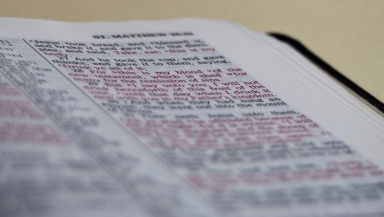
Ancient Hebrew Bibles, written between 700 and 1,000 years ago are the subject of a passionate ownership dispute between a Syrian rabbi and Israeli officials.
The Bibles were kept in synagogues in Damascus for hundreds of years, but were stolen 20 years ago by Israeli spies. Now, the National Library of Israel has asked an Israeli court to grant it official custodianship.
The disputed property is known as the Crowns of Damascus—nine books mostly written in Spain and Italy centuries ago. The pages are parchment, and the books are bound in leather.
In 1992, Syria allowed its Jewish population to leave the country, but did not allow them to take the Crowns of Damascus, according to the Associated Press.
The manuscripts were being guarded in the Syrian capital when Israel's national intelligence agency – The Mossad – stole them between 1993 and 1995. The agency turned the documents over to the library for restoration and safekeeping, and their location was kept a secret for over a decade. Rabbi Avraham Hamra, a Syrian Jew who now lives in Israel, was identified as one of the people that helped organise the Mossad mission.
In 2000, the Crowns of Damascus were exhibited at the home of the Israeli president. A catalogue distributed at the exhibition allegedly contained a promise to Rabbi Hamra that because the Bibles are the "religious and spiritual treasure of the Syrian Jewish community," the National Library of Israel would keep them "until the establishment of a Syrian Jewish heritage centre in Israel."
The library denies promising the books to Hamra, and the rabbi has yet to build the Syrian Jewish heritage center.
On Monday, the library asked the Israeli Justice Ministry to establish a public, charitable trust for the manuscripts, overseen by a steering committee. The committee would include Syrian Jews who have immigrated to Israel, and the library's proposal is supported by the Damascus Jewry Organisation in Israel.
Rabbi Hamra was invited to sit on the proposed steering committee but declined.
"It is not my property, but it is the property of my community," he told the AP. Hamra is considering filing a lawsuit to block the custodianship.
Syrian officials have not released a statement regarding the dispute.













